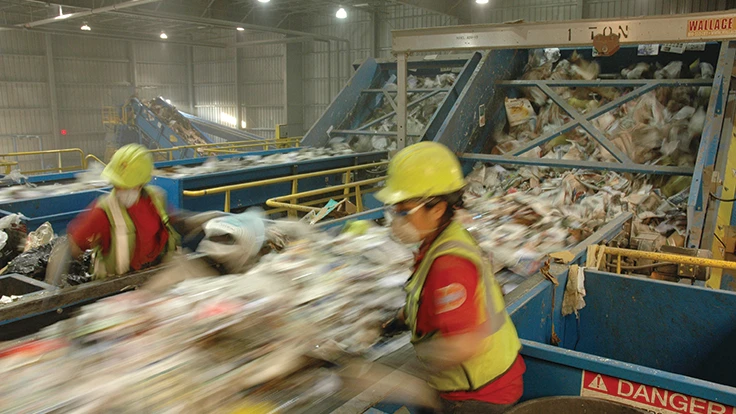
The Institute of Scrap Recycling Industries (ISRI), Washington, celebrates America Recycles Day by applauding individuals who make an effort to recycle daily and by encouraging everyone to learn more about recycling and the industry.
America Recycles Day, a national initiative of Keep America Beautiful, takes place every Nov. 15 to promote and celebrate recycling in the U.S.
“Each year America Recycles Day offers us a reminder of the critical role recycling plays in the earth’s sustainability, including its impact on the environment, energy savings and the economy,” says ISRI President Robin Wiener. “We encourage every person to use this day as a reminder of the importance of recycling and the need to make a concerted effort to properly recycle in their daily lives. Each individual can make a significant difference by knowing what can and cannot be recycled in their community and encouraging local officials to make policies that promote better recycling a top priority.”
ISRI says recycling is the first link in the manufacturing supply chain. In 2016 the U.S. recycling industry transformed more than 130 million metric tons of scrap metal, paper, plastic, glass, textiles, rubber and electronics into specification-grade commodities for use in new products.
While 70 percent of the recycled commodities processed last year in the United States were consumed domestically, the global scrap market also provides an outlet for our nation’s excess scrap supply, ISRI says. U.S. export sales of recycled scrap significantly benefit the U.S. trade balance. In 2016, the United States exported more than 37 million metric tons of scrap commodities valued at $16.5 billion. The association says that since 2000, net exports of U.S. scrap have made a positive contribution to our balance of trade amounting to more than $210 billion.
The U.S. scrap recycling industry directly and indirectly employed more than 534,000 Americans with while generating nearly $117 billion in economic activity in 2016, ISRI notes. The industry paid $13.2 billion in direct federal, state and local taxes.
Recycling conserves limited natural resources and reduces greenhouse gas emissions by significantly saving the amount of energy needed to manufacture the products that we buy, build and use every day, the association says. The energy saved by recycling may then be used for other purposes, such as heating our homes and powering our automobiles.
Latest from Recycling Today
- BMW Group, Encory launch 'direct recycling’ of batteries
- Loom Carbon, RTI International partner to scale textile recycling technology
- Goodwill Industries of West Michigan, American Glass Mosaics partner to divert glass from landfill
- CARI forms federal advocacy partnership
- Monthly packaging papers shipments down in November
- STEEL Act aims to enhance trade enforcement to prevent dumping of steel in the US
- San Francisco schools introduce compostable lunch trays
- Aduro graduates from Shell GameChanger program





